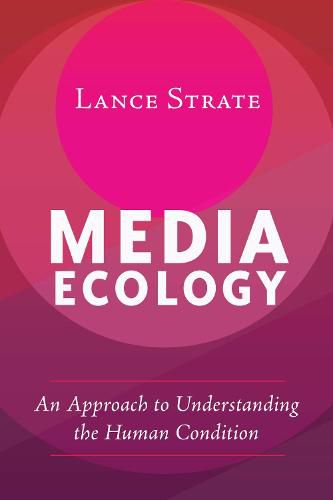Media Ecology: An Approach to Understanding the Human Condition
Lance Strate

Media Ecology: An Approach to Understanding the Human Condition
Lance Strate
This title is printed to order. This book may have been self-published. If so, we cannot guarantee the quality of the content. In the main most books will have gone through the editing process however some may not. We therefore suggest that you be aware of this before ordering this book. If in doubt check either the author or publisher’s details as we are unable to accept any returns unless they are faulty. Please contact us if you have any questions.
Media Ecology: An Approach to Understanding the Human Condition provides a long-awaited and much anticipated introduction to media ecology, a field of inquiry defined as the study of media as environments. Lance Strate presents a clear and concise explanation of an intellectual tradition concerned with much more than understanding media, but rather with understanding the conditions that shape us as human beings, drive human history, and determine the prospects for our survival as a species.
Much more than a summary, this book represents a new synthesis that moves the field forward in a manner that is both unique and unprecedented, and simultaneously grounded in an unparalleled grasp of media ecology’s intellectual foundations and its relation to other disciplines. Taking as its subject matter life, the universe, and everything, Strate describes the field as interdisciplinary and communication-centered, provides a detailed explication of McLuhan’s famous aphorism, the medium is the message, and explains that the human condition can only be understood in the context of our biophysical, technological, and symbolic environments.
Strate provides an in-depth examination of media ecology’s four key terms: medium, which is defined in much broader terms than in other fields; bias, which refers to tendencies inherent in materials and methods; effects, which are best understood via the Aristotelian notion of formal causality and contemporary systems theory; and environment, which includes the distinctions between the oral, chirographic, typographic, and electronic media environments. A chapter on tools serves as a guide to further media ecological research and scholarship. This book is well suited for graduate and undergraduate courses on communication theory and philosophy.
This item is not currently in-stock. It can be ordered online and is expected to ship in 7-14 days
Our stock data is updated periodically, and availability may change throughout the day for in-demand items. Please call the relevant shop for the most current stock information. Prices are subject to change without notice.
Sign in or become a Readings Member to add this title to a wishlist.


